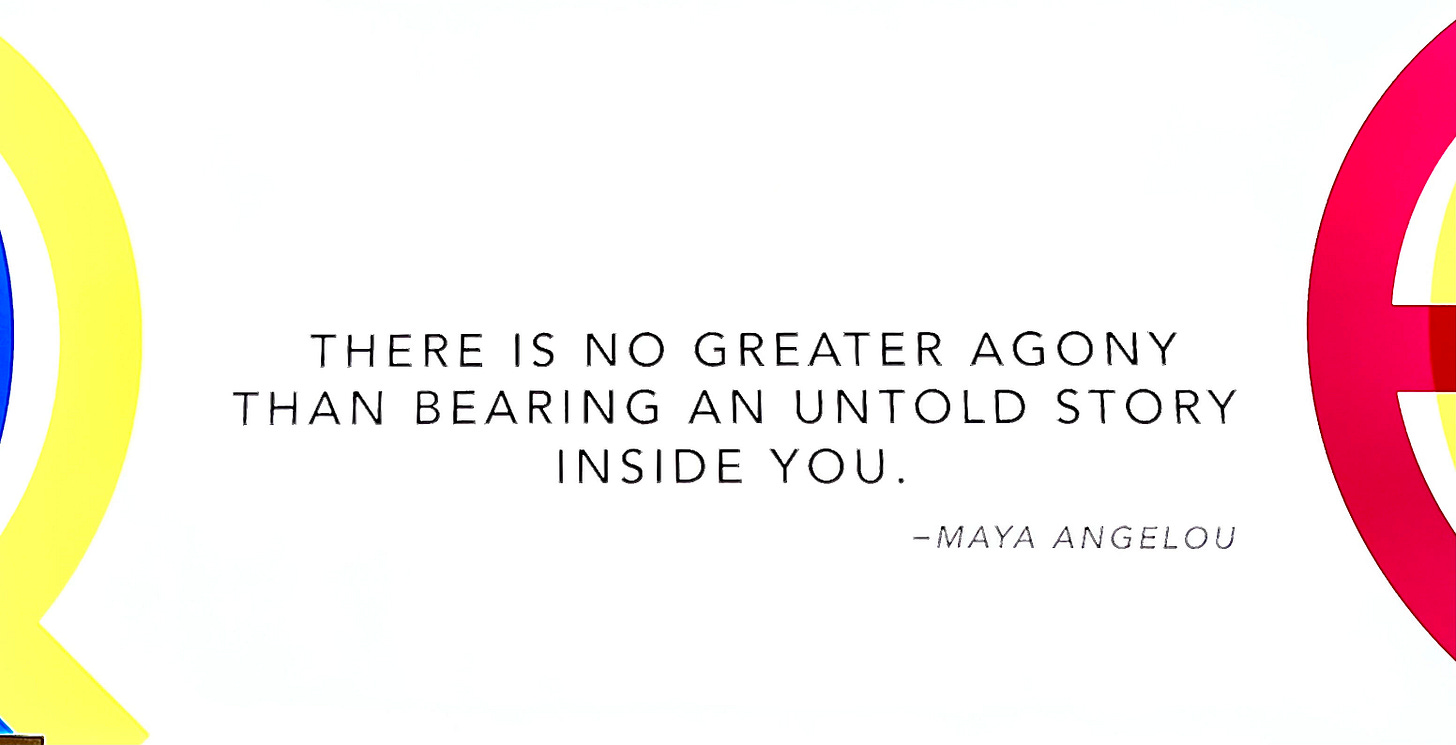The Difficult, Yet Doable, Beauty of Loving Otherness
Love calls us to step outside of ourselves, and into other people’s realities
Hello Beautiful Beings!
Imagine waking up with a different body. In a real way, that’s what happened to me in 2008—after a supernaturally surreal chain of events resulted in me falling 30-feet off a cliff, headfirst, onto a boulder. At 33 years-old, I went from abled to disabled, employed in the air force to medically retired, having “perfect” vision to having no peripheral vision or depth perception, and more. I didn’t choose to no longer be able to smell or drive, but those became my reality. Which, I believe, raises a larger question that is applicable to us all:
How much of what we come into the world with is our choice?
Do we decide our natural hair or eye color? How tall we become? If our body is inherently thick or thin? Our mental gifts? Our physical talents? Our gender? Where we’re born? Our parents? Whether we have allergies or not? Our sexuality?
It took me more than a decade after 2008 to name and own that I am disabled. Isn’t that interesting? In reflecting on why it took me so long, I’ve realized:
1. Something in us fears otherness.
2. We’re trained and taught to view people groups on the margins—whether it’s because of their race, condition, disease, or sexuality—as “less than.”
3. We prefer simplicity and clean categories we can neatly fit everyone in, to complexity and nuance. Even though humans are complex and nuanced.
4. It’s much easier to see, name, and judge other people groups as “wrong” or “bad,” than to face the darkness that’s within each of us.
5. It’s scary to bring the shame that’s within us into the light—which, turns out, to heal and free us. Instead, to help us feel better about ourselves, we tend to shame those different from us.
As a longtime student of the human condition, I point these out because I’ve observed them in myself, others, and our culture. I led this by reflecting on the shocking way my accident put me into a new reality, because: To love well—which, according to Jesus, is the point of life—it’s vital for us to put ourselves in other people’s shoes. In other words, love calls us to step outside of ourselves, and into other people’s realities.
Speaking of Jesus, it’s Pride Month! Why is it, though, that seemingly the loudest anti-LGBTQ+ voices come from Christians, who are literally called to follow the Christ? I mention that because Jesus was condemned by religious leaders for hanging out with, befriending, including, accepting, serving, helping, and loving the minorities, outsiders, and outcasts of his day. Near as I can tell, the only people he judged or “condemned,” were those who made a habit of judging and condemning others!
In other words, Jesus was pro-people, anti-harm, and pro-love.
Sounds like a life well lived to me, how about you?
Jesus said he came to help people flourish (John 10:10). Honestly, the less real I am, with myself and others, about the multitude of flavors that comprise Lang, the more I suffer. Befriending, including, accepting, and loving my uniqueness, quirks, disabilities, weirdness, and shame, though, continues to bring greater thriving than I ever imagined … and I’m an enthusiast!
To me, this is what Pride Month is about, and why it so heavily emphasizes joy. The more we love and include all the many inherent flavors of humanity, the more we all thrive together!
Full honesty. I was anti-LGBTQ+ for a significant chunk of my life. Why? Fear. Fear of not being “in.” Fear of rejection. Fear of doing things “wrong.” Fear of otherness. Do you know what freed me? Love. Radical, Christlike, unconditional, all-inclusive, expansive, unending love. It’s the only thing that’s healed, transformed, and grown me to be better.
There is no fear in love. In that, when we rest (literally) in love, we don’t fear otherness, change, uncertainty, or paradox. If it’s not love, which leads to flourishing, it’s not True.
Kato, my 18-year-old child (pictured above), while born in a female body, has never felt womanly on the inside. I’m so proud of them for sharing their inner-experience with us, by letting us know they are non-binary! The more our outer reality and experience matches and harmonizes with what’s inside of us, the more we flourish.
At least that’s been my personal and observed experience. How about you? What’s your story? What helps you meet the diverse, nuanced complexity of humanity with love?
Hugs & Love,
Lang (aka “Dr. Love”)







Lang, I love how you wove your own story into the incredible point that acceptance and love are the way to thriving. Difficult, yes. Worth it, absolutely.